By Akinlowo Adebambi
Those who have been following proceedings at the Lagos State Governorship election petition tribunal would have seen the scenarios that are playing out where the two leading political parties – APC and the Labour Party, at the March 18, 2023 Governorship election are working tirelessly to cancel each other out, a development that may go in favour of the PDP which came third during the polls.
Gbadebo’s move against APC
The candidate of the Labour Party Gbadebo Rhodes-Vivour, in his petition, who solely submitted to the tribunal without the backing of his political party, argued that Governor Babajide Sanwo-Olu, who was declared the winner of the election was not qualified to contest the election as at the time the governorship election was held on March 18 due to several reasons, among which are dual citizenship and allegations that his running mate, Dr. Kadiri Obafemi Hamzat had renounced his Nigerian citizenship while taking up the citizenship of the United States of America. He also alleged that Governor Babajide Sanwo-Olu was not a registered voter in Lagos State as a result of his invalid registration on INEC Voter Register.
APC’s counter
The APC, on the other hand, while responding to Rhodes-Vivour’s petition said he lacks the locus to challenge the election as he was by law, not even a candidate in the March 18 election due to his membership status of the Labour Party, thereby challenging Gbadebo’s qualifications to contest the election in the first place, and asking the tribunal to throw out his petition.
Intrigues
The intrigues here are in the petition of PDP and its Governorship Candidate, Olajide Adediran also known as Jandor, which also asked the tribunal to disqualify the duo of APC and Labour Party candidates on six different grounds that bother on their invalid sponsorship by their political parties and non-qualifications to have contested the March 18, 2023 elections in the first place.
While responding to the Jandor/PDP petition, the APC agreed completely with all the grounds that challenged the sponsorship of Gbadebo Rhodes-Vivour and inclusion of the Labour Party in that election.
The party also agreed that the tribunal should disqualify Gbadebo Rhodes-Vivour and the Labour Party.
Gbadebo Rhodes-Vivour and the Labour Party on the other hand, also agreed in totality in their response to Jandor/PDP petition that Governor Sanwo-Olu of APC also did not qualify to contest the March 18, 2023 Governorship election.
The interesting thing with the petitions before the tribunal however, is that none of either the APC or Labour Party sees anything wrong in Jandor/PDP candidacy and his qualifications as there’s nothing in their responses to PDP petition that suggests such.
This makes the proceedings so interesting in court. Whenever PDP lawyers are taking on the Labour Party, and making their case towards the disqualification of Labour Party Candidate, APC lawyers throw their weight behind the PDP, telling the court they are in agreement with the PDP that the candidate of Labour Party did not qualify to contest the election ab-initio.
It’s also the same feeling whenever the PDP is presenting its case against the APC at the tribunal; it gets an unalloyed support from the Labour Party lawyers.
On two occasions during the trial of Jandor/PDP case against Governor Sanwo-Olu and Obafemi Hamzat of APC, the ruling party found it so difficult to defend all the allegations of invalid sponsorship of their candidates in the election. Rather than submitting evidence to counter the PDP grounds in their petition, they are looking for technicalities to strike out the entire petition as against dealing with the real issues of defending the allegations of invalid sponsorship and non-qualifications of their candidates to contest the 2023 election.
For instance, as seen in the response to Jandor/PDP petition filed by Governor Sanwo-Olu and his deputy, both of whom were alleged of invalid sponsorship by APC for the March 18, 2023 Governorship Election, Governor Sanwo-Olu did not front load WAEC certificate or any statement from WAEC as an evidence to dispel the PDP ground that he lied on oath on his form EC9, where he claimed he has never submitted a forged certificate to INEC before.
Although, the APC, Governor Sanwoolu’s political party, on the other hand, front loaded a WAEC result purportedly downloaded from the same WAEC Result Verification Portal which had hitherto confirmed the document to be non-existent. However, there’s a discrepancy in the names that appear on the Ijebu Ife Community Grammar School statement of WAEC result the PDP claimed to be a forged document, and the WAEC result front loaded by the APC in their response to the PDP petition.
The representative of WAEC subpoenaed by the tribunal, who said he’s unable to tender the certificate of Governor Sanwo-Olu, came with a purported master list which also has different names from the statement of WAEC result submitted to INEC by Governor Sanwo-Olu in 2019.
When asked under cross-examination that is there a possibility that WAEC result bearing two different names do not belong to the same person, the WAEC witness who is also a lawyer responded by saying “most likely”
This further lays credence to the claim of the PDP that the statement of result presented by Governor Sanwo-Olu in 2019 was a forged document as the names on it reads SANWOOLU BABAJIDE, while the WAEC statement of result purportedly printed out from WAEC result verification portal and all other certificates he presented in his 2023 form EC9 had on them SANWOOLU OLUSOLA BABAJIDE and SANWO-OLU OLUSOLA BABAJIDE with no legal evidence such as Deed of poll to indicate that he has changed, corrected or added a middle name (OLUSOLA) to his names between 1981 and now.
Jandor and PDP are banking on section 182 j of the 1999 constitution as amended which says “no one shall be qualified for election to the office of Governor of a state if he/she has presented a forged certificate to INEC”.
And in this case, when asked in his Form EC9 for the 2023 elections which he deposed under oath, if he has presented a forged certificate to INEC, Governor Sanwo-Olu said “No.”
The Supreme Court has also affirmed this position in the very recent case of Peoples Democratic Party & 2 Ors. Vs. Biobarakuma Degi-Eremienyo & 3 Ors (2021) 9 NWLR (PT. 1781) Pg.27.
The Supreme Court in its judgment delivered on the 13th day of February, 2020 held as follows: Regularization and correction. Its statement at pages 575 and 576 “that affidavit of change, correction and confirmation of name has to be by Deed Poll and not mere deposition” is adverse to the 1st, 2nd and 3rd Respondents” (pg 15)
“The 1st Respondent did not explain why in 1990, in spite of the alleged error in 1984, Rivers State University of Science and Technology still inscribed the name “Degi Biobarakuma” on the certificate at page 62, and not Biobarakuma Wanagagha Degi, his name at birth or Biobarakuma Degi appearing on his 1990 Statutory Declaration of Age. It is clearly fraudulent for one person to allegedly bear several names that he uses variously, chameleonic to suit the changing environment.
The law now is that you cannot change or correct your name by swearing an affidavit and publishing “change of name” in a newspaper. You can only change or correct your name by a Deed poll, and then proceed to the Nigerian Civil Registry to have it published in an official gazette.”
In this case, Governor Sanwo-Olu has no deed polls, not even an affidavit to indicate corrections and additional name to his name as appeared on his Ijebu Ife Community Grammar School 1981 Statement of WAEC result he submitted to INEC for the 2019 election under oath.
Governor Sanwo-Olu’s deputy Obafemi Hamzat who was alleged not have fulfilled all constitutional requirements for election into the office he sought to contest by not submitting alongside his form EC9, a declaration of oath before the commissioner of oath in any of the court prescribed by the law, which is a breach of section 29 (2) of the electoral act 2022 that says “The list or information submitted by each candidate shall be accompanied by an affidavit sworn to by the candidate, at the Federal High Court, High Court of a State, or Federal Capital Territory, indicating that he or she has fulfilled all the constitutional requirements for election into that office.”
While responding to this, both Governor Sanwo-Olu and Hamzat, in their joint response to Jandor/PDP petition, did not provide a counter claim in a certified true copy of his form EC9 submitted to INEC, despite denying any wrongdoing. This is so because the candidate of PDP Abdul-Azeez Olajide Adediran popularly known as Jandor had front-loaded in his petition to the tribunal a certified true copy of the same form EC9 of Governor Sanwo-Olu’s running mate, which clearly shows omission of the declaration of oath page.
The third ground of Jandor/PDP petition was that it’s the Lagos state chapter of the APC that conducted the primary election which produced Governor Sanwo-Olu as a candidate of APC, via a letter titled Notification of Primary Election dated 24th May, 2022 signed by the Lagos state Chairman of the APC Mr. Cornelius Ojelabi and addressed to the Lagos State Resident electoral Commissioner of INEC, which contravened the provisions of section 84 (5b) i of the Electoral Act that stipulates: “In the case of nominations to the position of Governorship Candidate, the political party, shall where it intends to sponsor candidates- hold a special congress in a state capital or any other place within the state with delegates voting for aspirants of their choice at a congress to be held on a specified date appointed by the National Executive Committee of the party”. And section 84(13) clearly states that “where a political party fails to comply with the provisions of this act in the conduct of its primaries, its candidate shall not be included in the election for the particular position in issue.
The Supreme Court has laid this to rest in series of it judgments, the latest being the March 1, 2023 judgment between Sadiq Wali and Muhammed Abacha and others where the Apex court In a unanimous judgment ruled that it is only the National Working Committee of a political party that is empowered to conduct primary elections and not the state chapter.
The apex court five-man panel, led by Justice John lyang Okoro ruled that Sadiq Aminu Wali remains the authentic Gubernatorial candidate of the PDP in Kano State, having been elected through a lawful primary election, conducted by the National Working Committee of the Party.
Jandor/PDP petition against the Labour Party and its candidate was on the grounds that Gbadebo Rhodes Vivour and the Labour Party violated section 177 (C) of the 1999 constitution of the Federal Republic of Nigeria as amended which says “A person shall be qualified for election to the office of Governor of a State if he/she is a Member of a political party and he’s sponsored by that political party.
The Labour Party also violated its own constitution in sponsoring Gbadebo Rhodes Vivour as its candidate. Article 10 (1) ii of Labour Party constitution says a member of Labour Party cannot belong to any other political party whether or not such political party is based outside the country”
To affirm that the candidate of the Labour Party Gbadebo Rhodes Vivour as at the time of the election wasn’t a Member of Labour Party, Jandor/PDP in their petition front loaded and pleaded CTCs of affidavit deposed to by Gbadebo Rhodes-Vivour that he joined Labour Party on the 18th of June,2022 and that he also picked up nomination forms on the 20th of June to contest for Governorship position under same Labour party. Meanwhile on the 19th of June, 2022, the same Gbadebo Rhodes-Vivour wrote on his official letterhead, a duly signed application letter to be the Deputy Governorship Candidate of the PDP in the same 2023 election. He further went to Wadata Plaza, the National Secretariat of the PDP on the 22nd of June to attend PDP screening exercise for Deputy Governorship candidates, and was screened and cleared as such. This exercise was widely published in National Dailies as it was a public event organised by the party. All evidence is submitted and admitted by the tribunal.
Labour Party and Gbadebo Rhodes-Vivour in their response to the Jandor/PDP petition submitted at the tribunal claimed “Freedom of Association as excuse for his action.”
Jandor/PDP in their petition submitted to the tribunal also faulted Labour Party sponsorship of Gbadebo Rhodes-Vivour, citing violation of section 29 (1) of the electoral act 2022 which says a political party must submit to INEC in a prescribed form, list of the candidates the party propose to sponsor at the elections, who must have emerged from a valid primaries conducted by the same political party”.
In this case, the INEC form EC9 filled by Gbadebo Rhodes-Vivour as the Candidate of the Labour Party, was endorsed by him before the commissioner of oath on the 14th of July, 2022, long before the primary election that produced him as Candidate of the party. This, according to the law, has invalidated his sponsorship by the Labour Party as the provision of the electoral act says Political parties can only give INEC form EC9 to a candidate who must have emerged from a valid primary election. Jandor/PDP also front-loaded CTC of Gbadebo Rhodes-Vivour Form EC9 with his petition and it has been admitted in evidence as exhibit.
Section 84 (5b)i and Section 84 (13) are other provisions of the electoral act Jandor/PDP are relying on to invalidate the sponsorship of Gbadebo Rhodes-Vivour, as the process of his primary election that preceded his purported sponsorship in that election contravened the Electoral Act 2022. All CTCs of documents relating to these infractions were also front-loaded with the Jandor/PDP petition and they have all been admitted by the tribunal as exhibits.
Jandor/PDP prayers before the tribunal is supported by section 136 (2) of the Electoral Act which stipulates that “where the tribunal or court nullifies an election on the ground that the person who obtained the highest votes at the election was not qualified to contest the election, the election tribunal or court shall declare the person with the second highest number of valid votes cast at the election who satisfies the requirement of the constitution and this electoral act as duly elected; provided that the person with the highest number of valid votes cast at the election remains a member of the political party on which platform he contested the election otherwise, the candidate with the next highest of number of votes shall be declared the winner of the election.”
This section has also given power to the tribunal to disqualify any candidate whose Nomination and subsequent sponsorship by a political party contravenes provisions of both the constitution and the electoral act 2022. This will shock those who think election petition tribunal has no locus standi to adjudicate on matters arising from invalid nominations and sponsorship of a political party’s candidate for the purpose of a general election.
The grounds of Jandor/PDP petition at the tribunal have at least, three major Supreme Court authorities already cited in this write up such as the discrepancies in the names on documents submitted to INEC and the judgment that only the national working committee of a political party can by law, organise primary elections.
The difference between this scenario and that of Imo State is that there’s no ambiguity in this petition, as against that of Governor Hope Uzodimma of Imo State. This petition is dealing with fact and the Law. If the Judiciary can return a candidate that came 4th position in an election with a petition that had controversial issues, such non-compliance in voting and counting process, then it shouldn’t have an issue to return someone who came third with less ambiguity in his petitions.
Dr. Akinlowo Adebambi, a legal and Public analyst, wrote from Lagos.
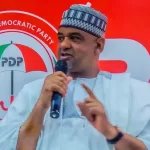


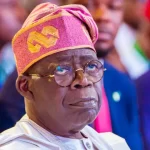

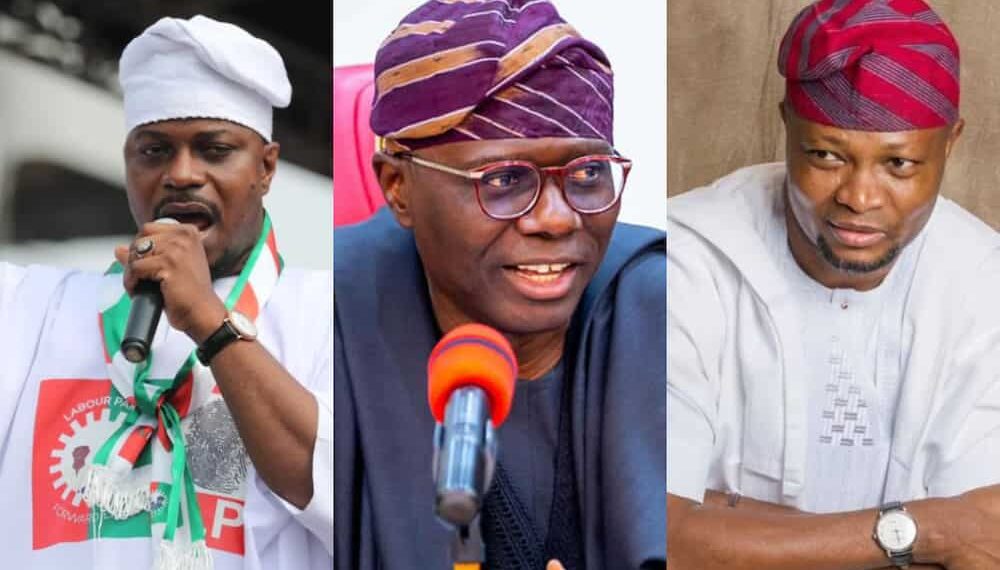
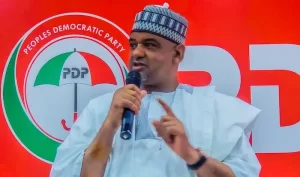


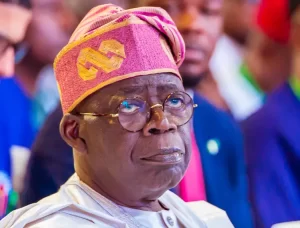
More Stories
Senate Drama: Akpabio vs. Natasha and the Lessons for Nigeria
What if Farotimi’s allegations are not false
Governor Otti unveils new era of development for Ohafia with landmark bill signing